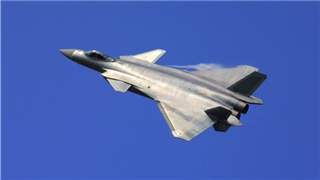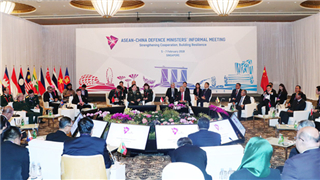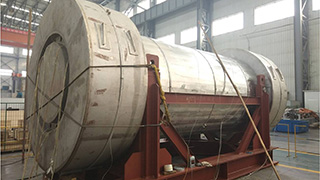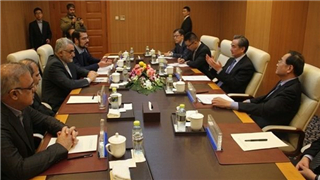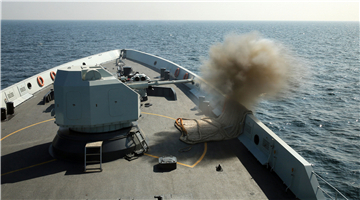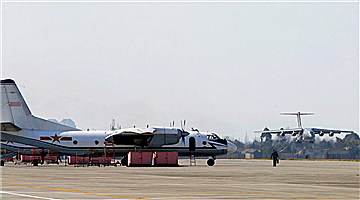Japanese media recently reported that the Japan-US Nuclear Cooperation Agreement that will terminate in July 2018 was automatically extended on January 16, 2018.
As the agreement allows Japan to promote the reprocessing of nuclear fuel, it is the basis for Japan's nuclear fuel recycling policy, and the extension of the agreement has caught the world’s close attention.
Japan reportedly has a current 47 tons of plutonium, enough for about 6,000 nuclear bombs. Under such circumstances, it is an open secret that Japan has strong capability of nuclear weapon manufacturing.
In March 1995, a Japanese magazine announced that Japan was able to manufacture a nuclear bomb in 183 days. Now, this capability must have improved significantly thanks to the continuous development and maturity of the country's nuclear technology.
In June 2016, then US Vice President Biden told the American press in an interview that "Japan is capable of possessing nuclear weapons overnight." American nuclear expert Kuznick even said "Japan is only a screwdriver away from making nuclear warheads".
Moreover, Japan is also strong in the Research and Development (R&D) of nuclear launchers and carriers. The just-launched Epsilon solid fuel carrier rocket is a potential nuclear warhead carrier and can become an intercontinental ballistic missile with the range of 12,000 kilometers with minor modifications.
Japan also has a huge conventional submarine force with 22 submarines, all of which can be modified to launch cruise missiles that carry nuclear warheads. Japan's F-15J military aircraft can also launch nuclear bombs upon modification and therefore Japan actually has the material foundation for making nuclear deployments on all fronts.
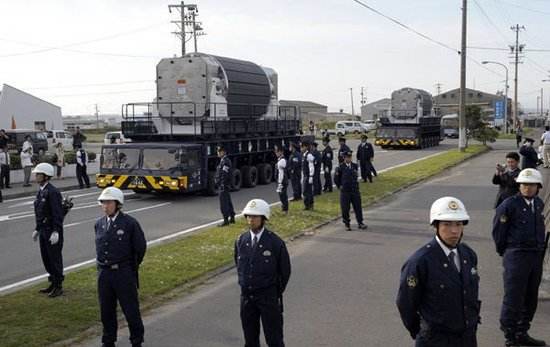
On August 20, 2017, the American website of National Interest magazine analyzed Japan's possible deployment of its nuclear weapons based on the "3D" system. Although its conclusion was that Japan's land missiles have a low survival rate, and it noted that submerged nuclear submarines can hardly launch nuclear weapons and air bombs are exposed to attack, it still confirmed Japan's material strength and foundation in those areas.
Japan's possession of nuclear weapons will change its national nature, aggravate regional nuclear arms race and destroy regional security.
For a long time, Japan's possession of nuclear weapons has been a highly sensitive topic. If that became a reality it would have tremendous political and military impacts on the international community.
First of all, Japan's possession of nuclear weapons would completely change its national nature.
The Japanese government has revised the peaceful constitution and passed the new security bills in recent years in attempt to change the exclusively defensive military mission of its self-defense forces, change Japan's political nature as a peaceful country, and shake off the restraint on Japan's national militarization by the post-war system.
In this process, the possession of nuclear weapons is an extremely important symbol or bottom line. Once the bottom line is crossed, there will be no curb on Japan's military strength and it will get on the path of militaristic revival in the real sense.
In April 2017, a Russian expert on military strategy published an article, saying that Japan is able to produce a large amount of nuclear weapons within several months and leave the nuclear protection from the US. This is thanks to Japan's silent but continuous nuclear energy development over the years. As soon as it can escape the United States’ control, Japan will become a top nuclear power in the world.
Second, Japan's possession of nuclear weapons will aggravate the nuclear arms race in the Asia-Pacific region.
The Asia-Pacific region has always been a hotspot region in the nuclear arms race. Some countries, for political or military purposes, have kept developing nuclear weapons regardless of international conventions. Among those countries, Japan is both an active and passive player.
As a nation restricted by the post-war system, Japan's development of nuclear weapons will doubtless alarm surrounding countries. Especially in the process of solving the protracted Korean nuclear issue, Japan's possession of nuclear weapons is a destructive factor from every perspective.
After the Democratic People's Republic of Korea (DPRK) had its sixth nuclear test in September 2017, Japanese defense minister Itsunori Onodera said in public that he believed the DPRK already possessed nuclear weapons, which made the South Korean press highly alert.
The South Korean press suspected that Japan was hyping up the nuclear threat from the DPRK to pave the way for its own possession of nuclear weapons. This will only further stimulate the nuclear arms race in the Asia-Pacific region.
Lastly, Japan's possession of nuclear weapons will directly threaten regional security.
Why is Japan so bent on developing nuclear weapons? The direct reason is to deal with the nuclear threat from the DPRK, but Japan has more definite and long-term military goals.
On April 6, 2002, Ichirō Ozawa, head of Japan's Liberal Democratic Party (LDP), said at a symposium in Fukushima City that "if China is too bloated, Japan will make nuclear weapons to contain it."
"The plutonium in Japan's nuclear power plants is enough to make more than 4,000 nuclear warheads. We are in no way inferior to China in military strength," said Ichirō Ozawa.
Such intense remarks fully reflect Japan's real intention in developing nuclear weapons, and indicate that addressing the DPRK nuclear threat is just the first step.
International community is fully aware of the danger of Japan's possession of nuclear weapons.
On October 9, 2015, the China Arms Control and Disarmament Association (CACDA) and the China Institute of Nuclear Information & Economics issued the Research Report on Nuclear Materials in Japan.
The report pointed out that Japan has a persistent and serious imbalance in the supply and demand of nuclear materials which creates a risk of nuclear proliferation and of an increase in nuclear terrorism.
In early 2016, James M. Acton, a senior fellow at the Carnegie Endowment for International Peace, said at the Japan National Press Club that Japan has about 48 tons of plutonium that can be used for nuclear weapons, which largely exceeds the volume that can be used by its nuclear power plants.
Japan's stock of plutonium may worsen the tension and the risk of nuclear terrorism in Asia, and other countries may follow suit, James said.
(Written by Wang Peng with the People's Liberation Army (PLA) Air Force Engineering University)


